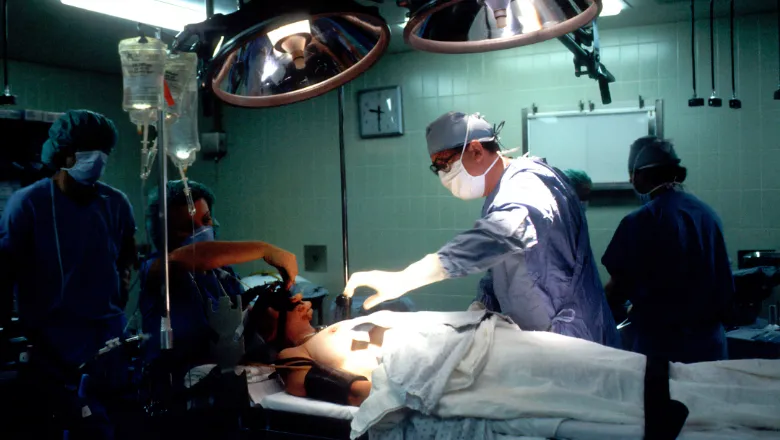Our findings demonstrate the impact of the national COVID-19 response, which may cut short the lives of thousands of people with cancer in England over the next 5 years. Whilst currently attention is being focused on diagnostic pathways where cancer is suspected, the issue is that a significant number of cancers are diagnosed in patients awaiting investigation for symptoms not considered related to be cancer. Therefore, we need a whole system approach to avoid the predicted excess deaths.
Dr Ajay Aggarwal, Honorary Senior Lecturer
20 July 2020
Additional cancer deaths due to delayed diagnoses during pandemic
A new study suggests 3,291 to 3,621 lives could be lost to four main cancers in England (breast, colorectal, oesophageal and lung) over the next 5 years due to delays in diagnosis caused by COVID-19 response.

On average, for each avoidable cancer death due to diagnostic delay, 20 years of life will be lost—reflecting substantial proportion of deaths in younger/middle-aged people.
The study, published today in The Lancet Oncology journal by King’s researchers, highlights the need for urgent policy interventions to deal with the backlog of patients awaiting routine diagnostic services and to reduce the cancer death toll attributable to the COVID-19 pandemic.
During the UK-wide lockdown to combat the COVID-19 pandemic, cancer screening and routine outpatient referral pathways (through which 30-40% of patients are diagnosed) were suspended. The only route to diagnosis for suspected cancer cases was via an urgent 2-week general practitioner (GP) referral or presenting to an emergency department. Since physical distancing measures were introduced on March 16 2020, urgent referrals have fallen by as much as 80%. With some form of physical distancing expected to continue for up to a year, further negative impact on the lives of cancer patients is likely.
Researchers analysed existing English National Health Service (NHS) cancer registration and hospital administrative data on more than 93,000 cancer patients (aged 15-84 years) diagnosed in 2010-2012, to estimate the effect of delays in diagnosis on cancer survival for four main cancer types - breast, colorectal, oesophageal and lung. They modelled the impact of reallocating patients from usual screening and non-urgent routine referral pathways (i.e. GPs and secondary care) to urgent and emergency pathways (which are associated with more advanced stage of disease at diagnosis), for a year after physical distancing measures were introduced on March 16 2020, to reflect the expected duration of disruption to diagnostic services.
The authors considered three reallocation scenarios which reflect what is being seen in the NHS during the COVID-19 crisis, providing best and worst case estimates to calculate the impact on net survival, additional deaths, and years of life lost (the number of years of life a person would have been expected to live had they not died of cancer) compared to pre-pandemic figures.
The analyses suggest that delays in cancer diagnosis and changes in health-seeking behaviour could result in breast cancer deaths increasing by an estimated 8–10% (equivalent to between 281 and 344 additional deaths by 2025) colorectal (bowel) cancer deaths by 15–17% (1445–1563), a 5% (1235–1372) rise in lung cancer deaths, and a 6% (330–342) rise in deaths from oesophageal cancer over the next 5 years.
On average, for each avoidable cancer death due to diagnostic delay, 20 years of life will be lost. These estimates paint a sobering picture and reflect the many young people who are affected by cancer in the prime of life during their most productive years.
Professor Richard Sullivan, School of Cancer & Pharmaceutical Sciences
The frontline of the cancer diagnostic system is GPs surgeries, and even as lockdown measures are being relaxed, presentation to primary care continues to be much lower than pre-pandemic levels.
The authors note that excess deaths across all cancer care is likely to be much higher. They emphasise that they only look at four cancer types and focus on delayed diagnoses. Therefore, it doesn’t account for delayed or cancelled cancer treatments for those already diagnosed with cancer.

